After finally reaching to the amazing Peleș Castle and showing you its beautiful surroundings in the Day 5 (Part 1) of this Leaving All Behind series, it's time now to walk you inside all the rooms of the castle to appreciate its charming atmosphere and its ostentatious decoration.
Inside the 19th century Neo-Renaissance palace
After paying the entrance fee, I enter the second most visited castle in whole Romania (after Bran Castle), but the most beautiful.
Of the 160 rooms that the castle has we can find a mini-Theatre (capacity for 60 people with a royal box, showed the first movie projection in Romania in 1906), the Music Room (Indian style), the Turkish Salon (handmade silk embroideries adorn the ceiling and its walls), the Great Hall of Honour (Italian style), the Council Room (Swiss style) and the Moorish Salon, among others.
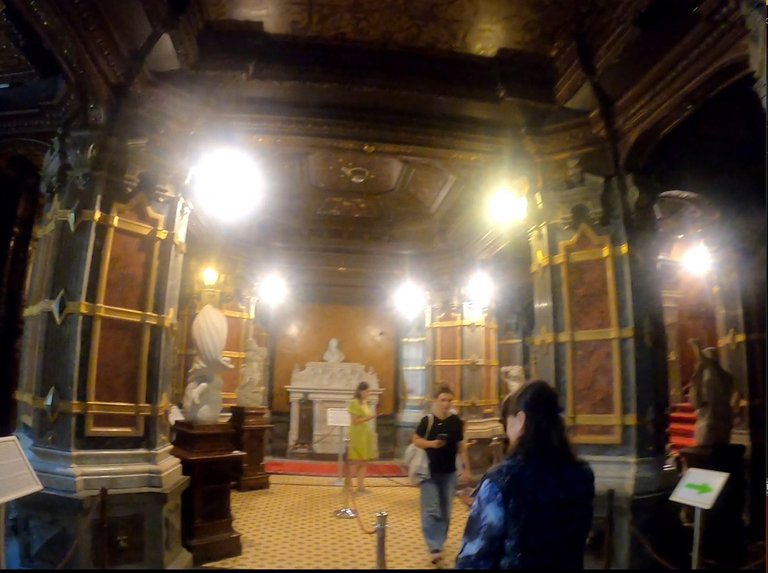
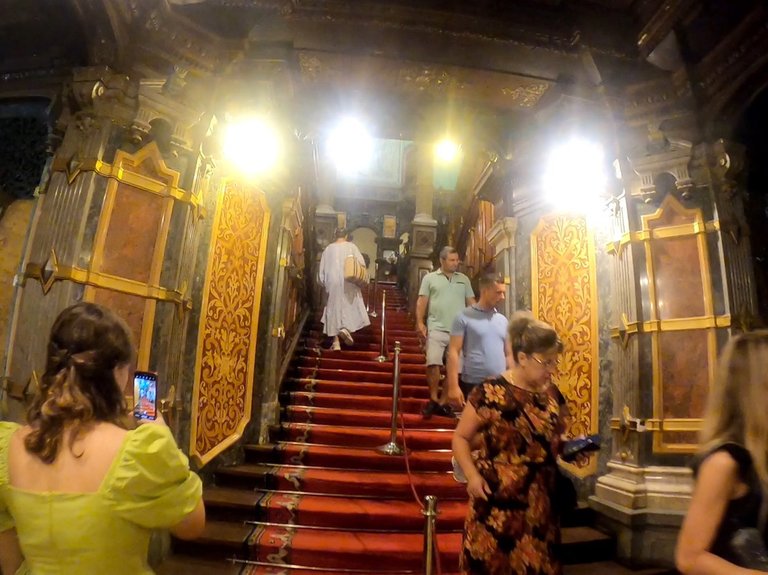
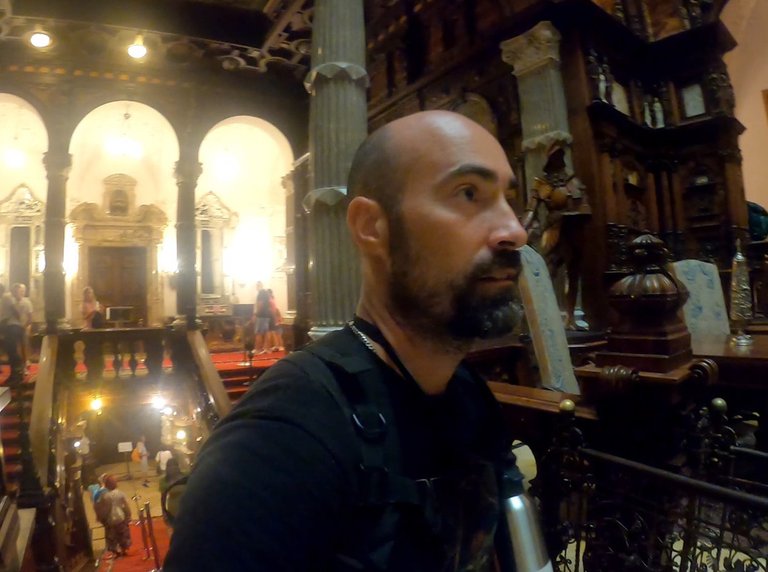
The Great Hall of Honour is the largest, spreading over three floors, and walls are dressed in exquisitely carved woodwork, mostly European walnut and exotic timbers, sprinkled with bas-reliefs and alabaster sculptures.
The glass roof is mobile, activated by an electric motor, so that the king could admire the blue sky on summer nights.
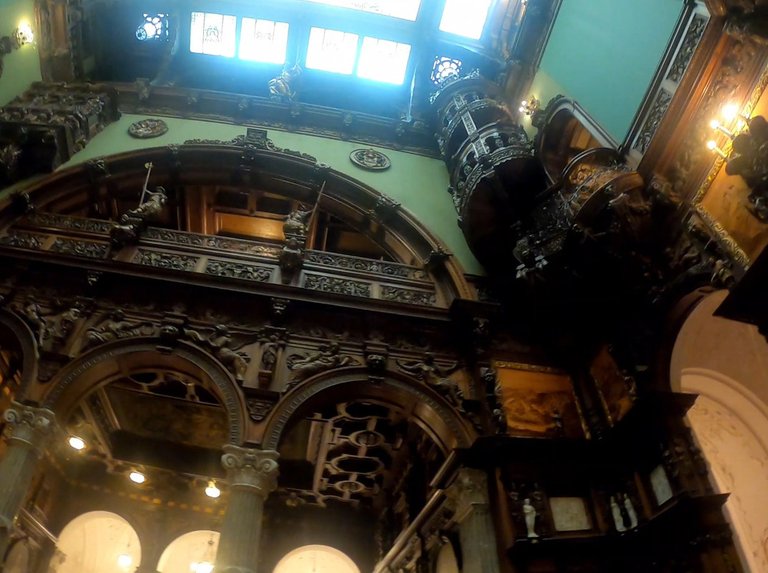
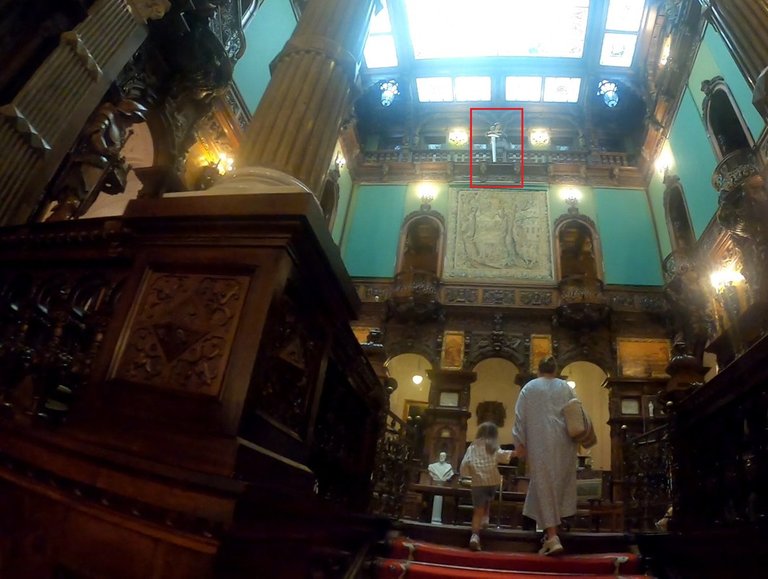
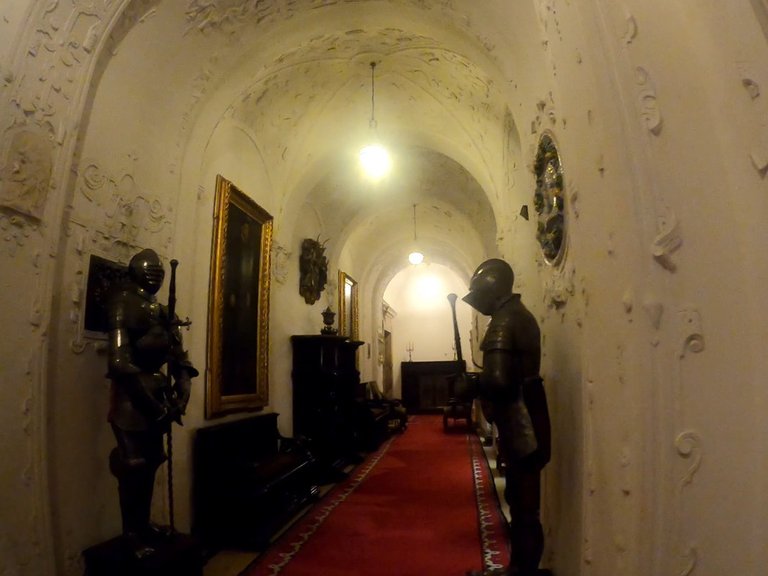
The Grand Armory displays 1,600 pieces from the total of 4,000 European and Oriental king's weaponry and armor collection from the 14th to 19th centuries, being the most famous piece the complete Maximilian armor for horse and rider.
Also on display are a wide array of polearms (glaives, halberds, lances, hunting spears), firearms (muskets, blunderbusses, snaphaunces, flintlocks, pistols), axes, crossbows, and swords (rapiers, sabers, broadswords, and many others) and the king added pieces used in his victory against the Ottoman Turks during the War of Independence.
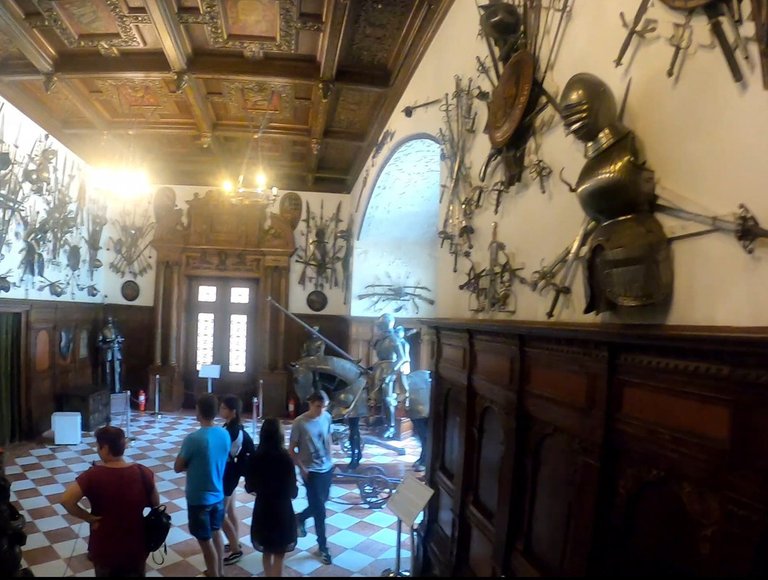
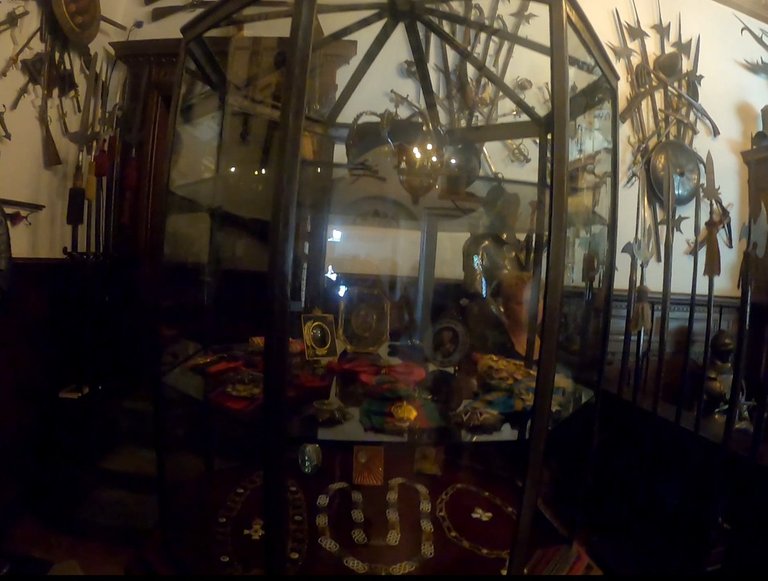
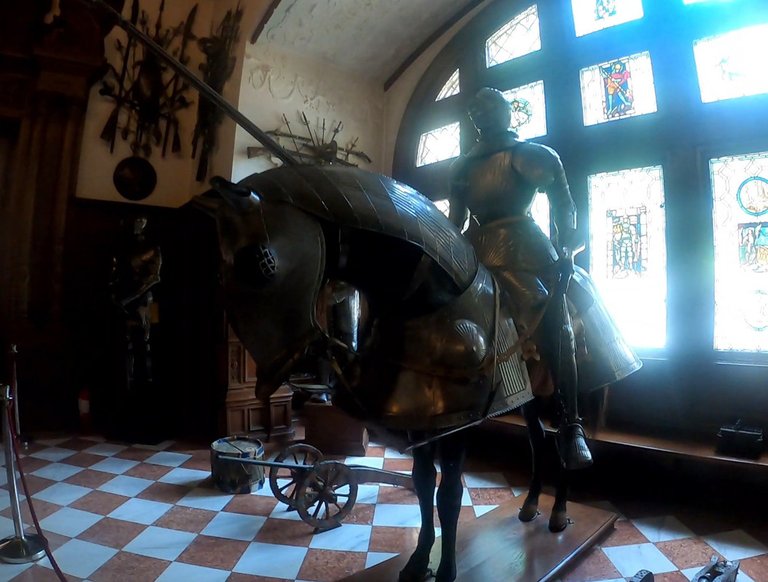
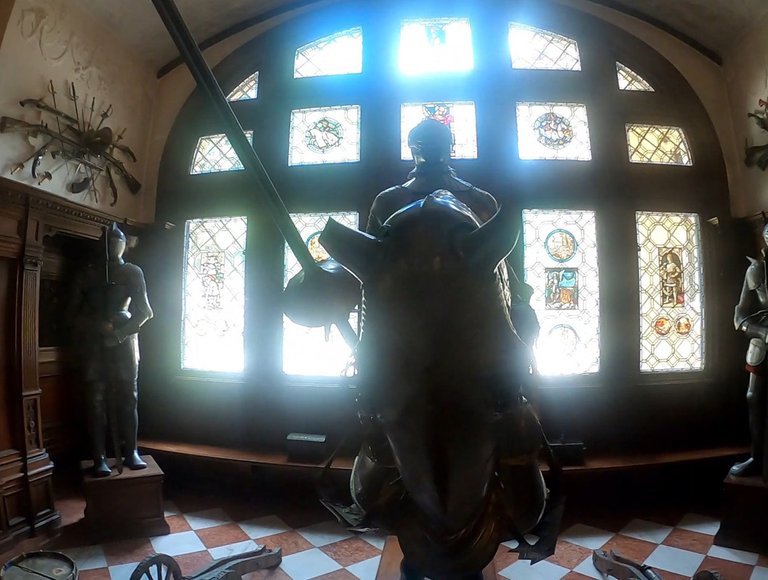
*Anecdote 1: On the video you can hear me searching for the German beheading broadsword almost throughout all the palace rooms since in all the sources I consulted about the palace they said that the huge beheading sword was placed in the armory and I couldn't find it anywhere around; when I was about to finish my visit and leave the palace, I realized that the great German broadsword that should be in the armory is that one hanging from the railing of the third floor of the Great Hall of Honour that I already showed you on one of the first pictures.
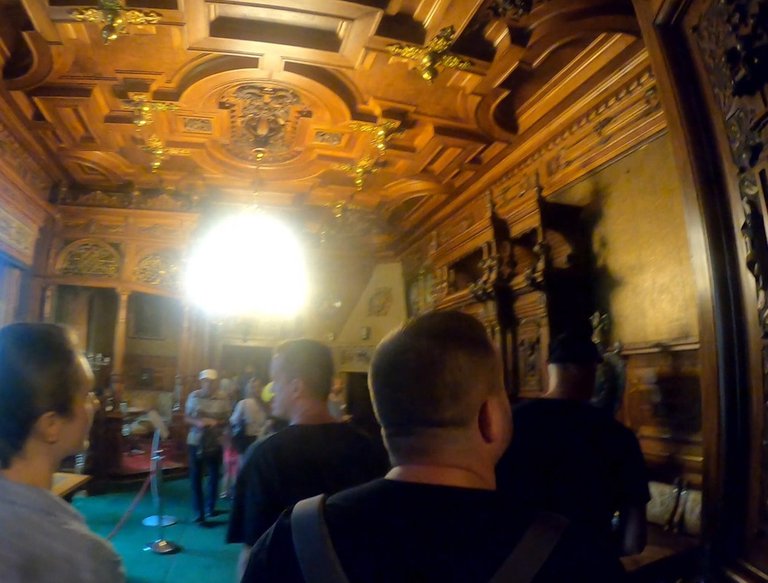
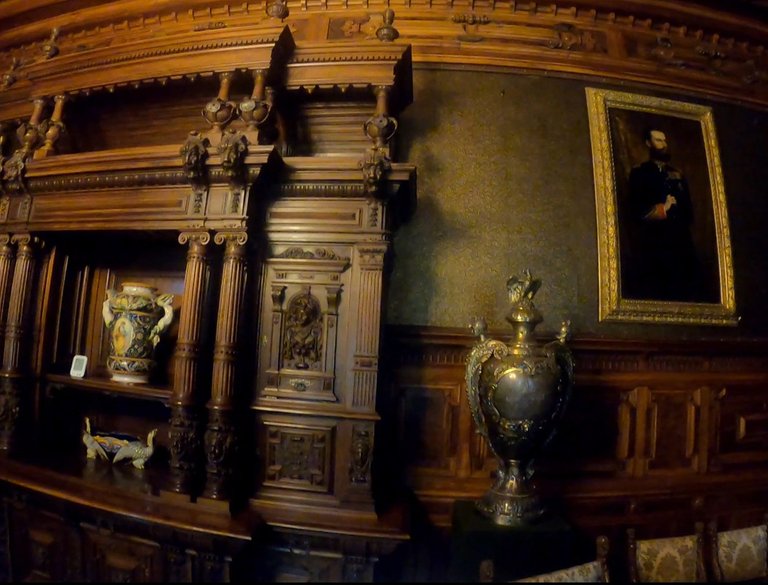
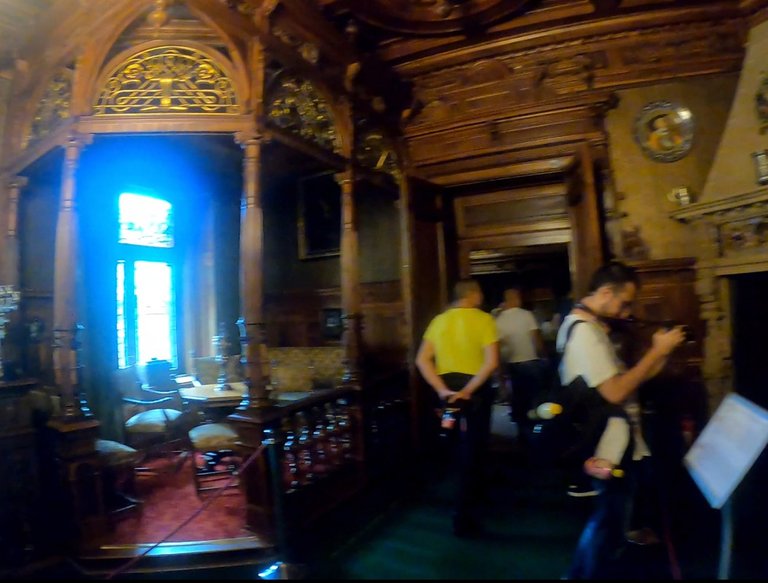
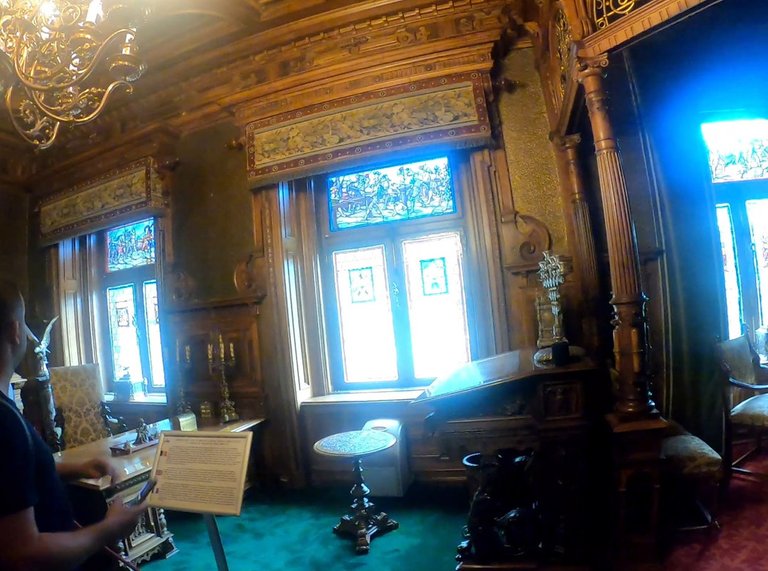
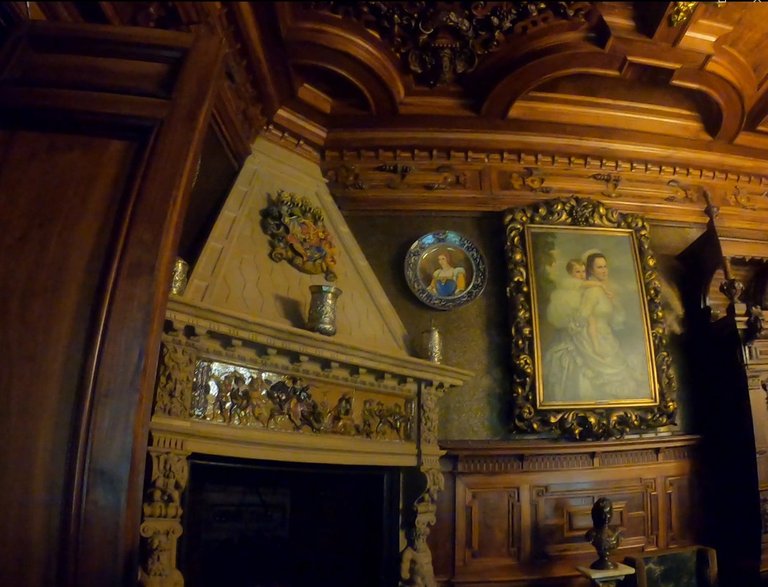
*Anecdote 2: (Next room after the King's Study it's the Royal Library ―you can see it on the video― but it was so dark that I couldn't appreciate anything, netiher worth it to post a pic of it. The library is supposed to appeal to fans of rare books with leather-covered covers and gold embossed lettering and also contains a secret door behind a bookcase for the king to take refuge but, in practice, none of this you can watch or appreciate, not only because of darkness but because they don't let you explore the room enough).
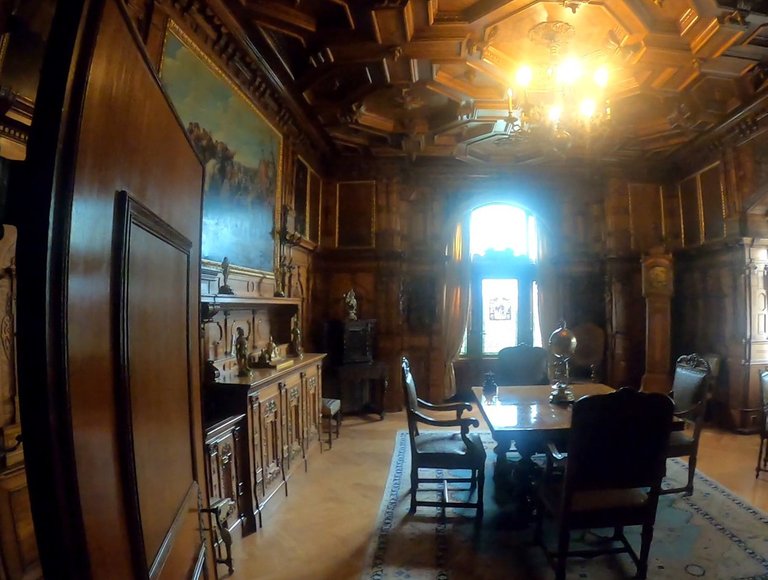
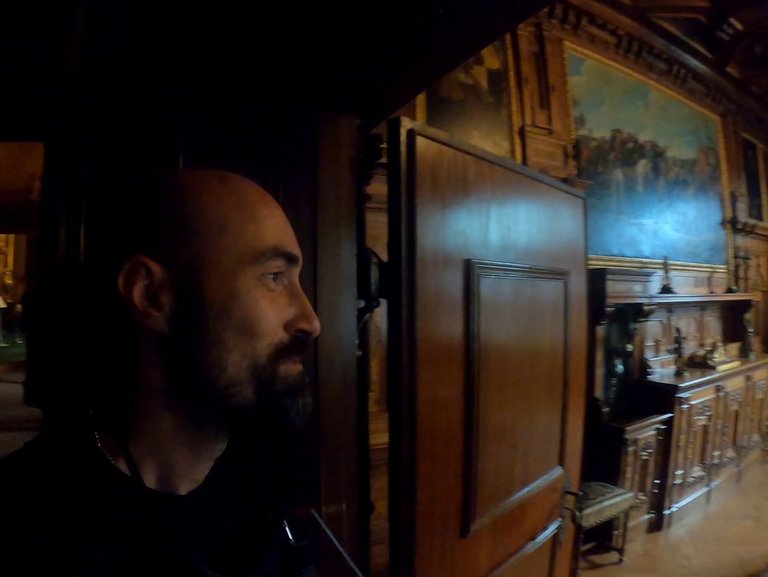
Next room was the Music Room (also called the Concert Hall, with predominant Indian style decoration) where you can find a clavichord from 1621, a harp, a grand piano and an organ stand with two keyboards.
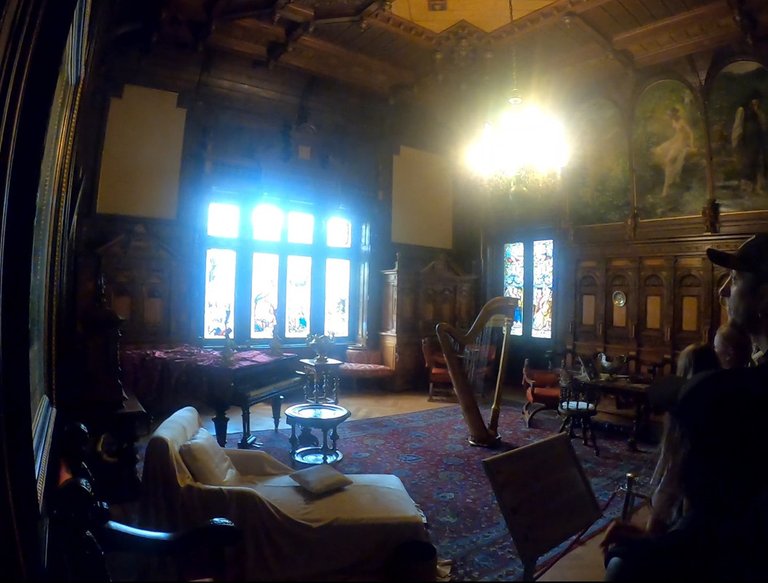
One of the most impressive rooms in the palace is the Florentine Room (also called the Great Salon) of Italian Neo-Renaissance style decoration, has solid bronze doors executed in Rome, ateliers of Luigi Magni and a grand marble fireplace executed by Paunazio with Michelangelo motifs.
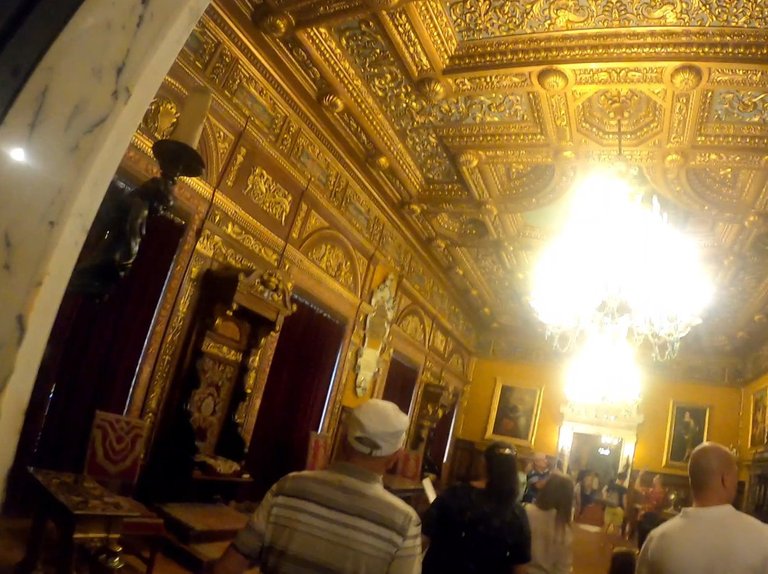
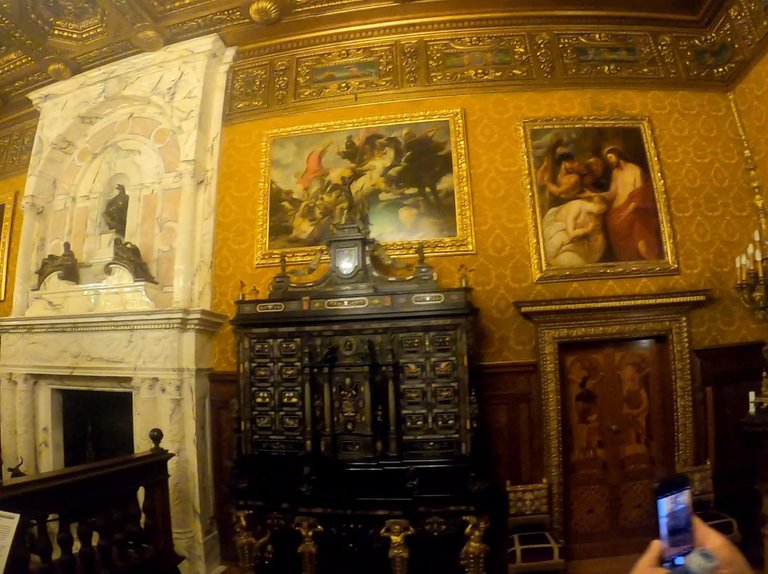
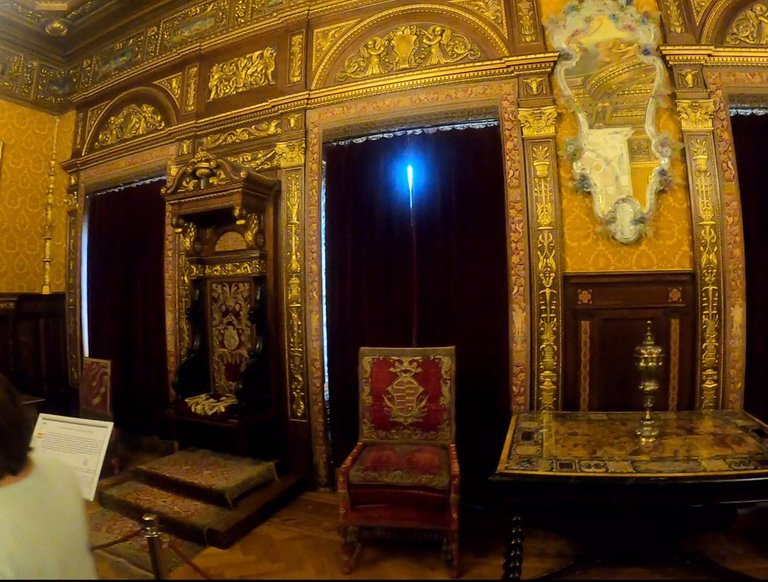
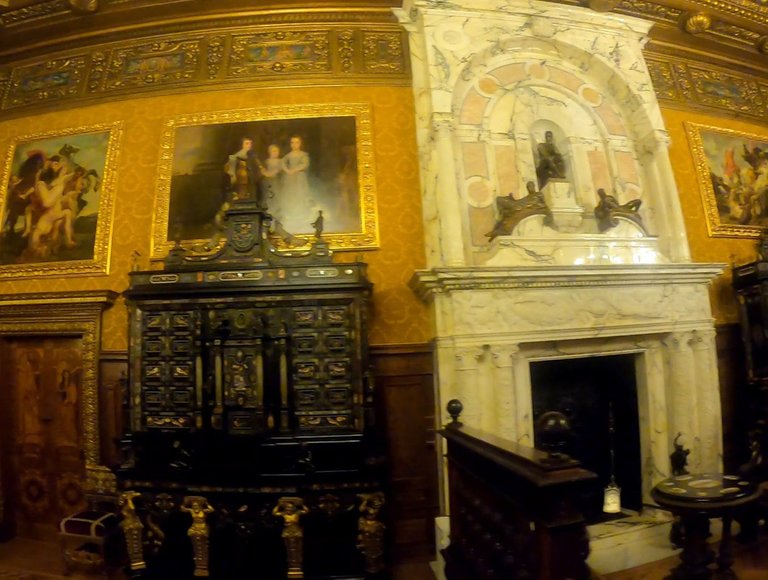
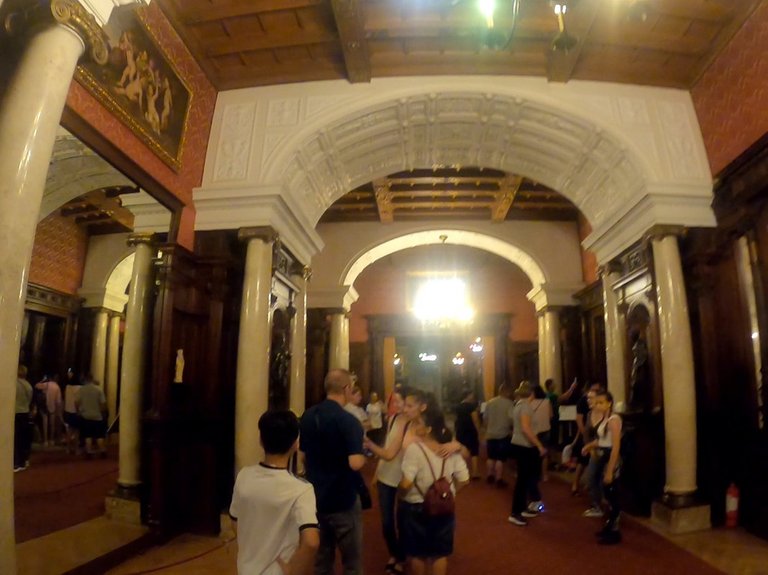
The Moorish Room was executed under the guidance of Charles Lecompte de Nouy, and is meant to embody elements of North-African and Hispanic-Moorish style. Mother-of-pearl inlaid furniture, fine Persian Sarouk and Ottoman Isparta rugs, Oriental weapons and armor and an indoor Carrara marble fountain, copy from Cairo, are the most expressive elements.
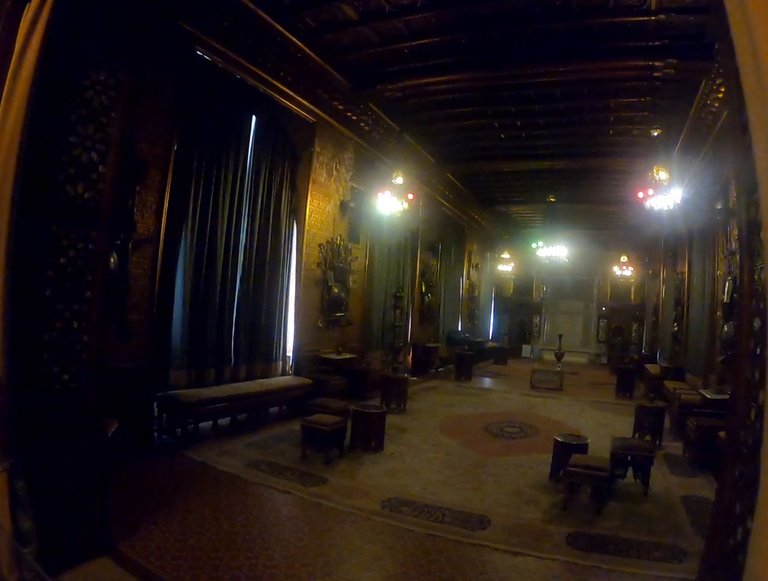
The Turish Room full of Turkish Izmir rugs and copperware from Anatolia and Persia, with walls covered in hand-made textiles like silk brocades from the Siegert shops of Vienna.
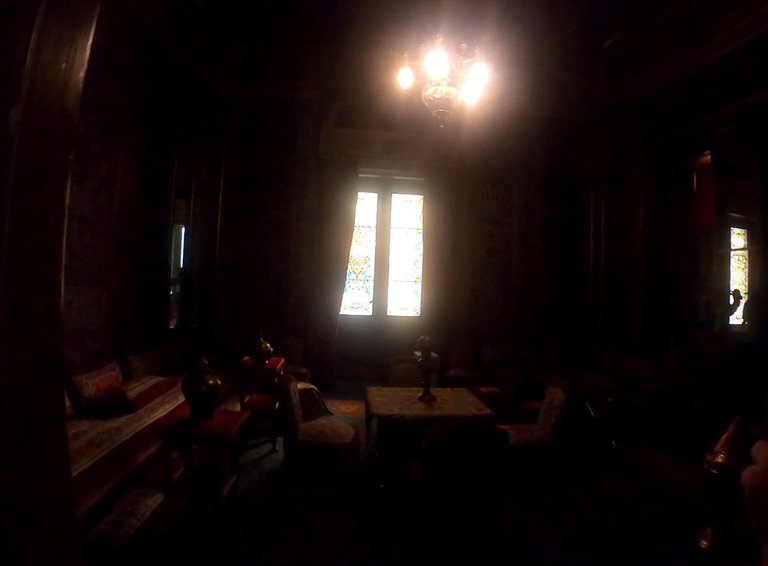
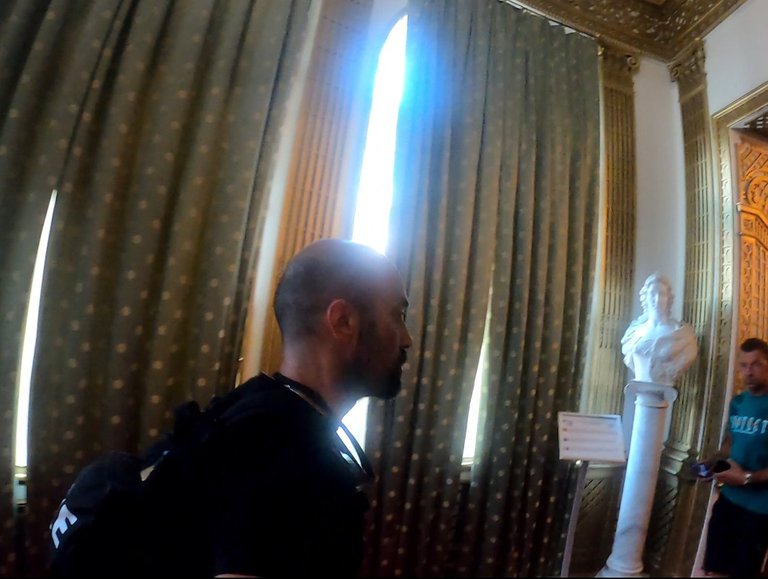
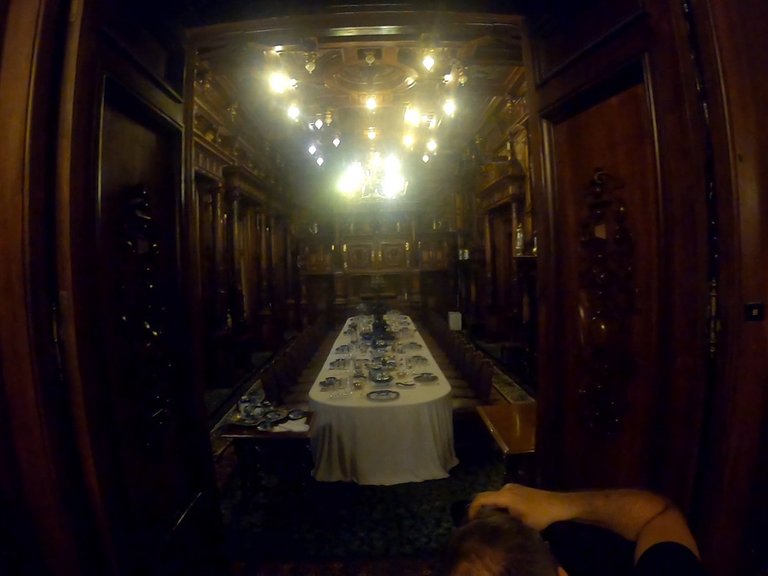
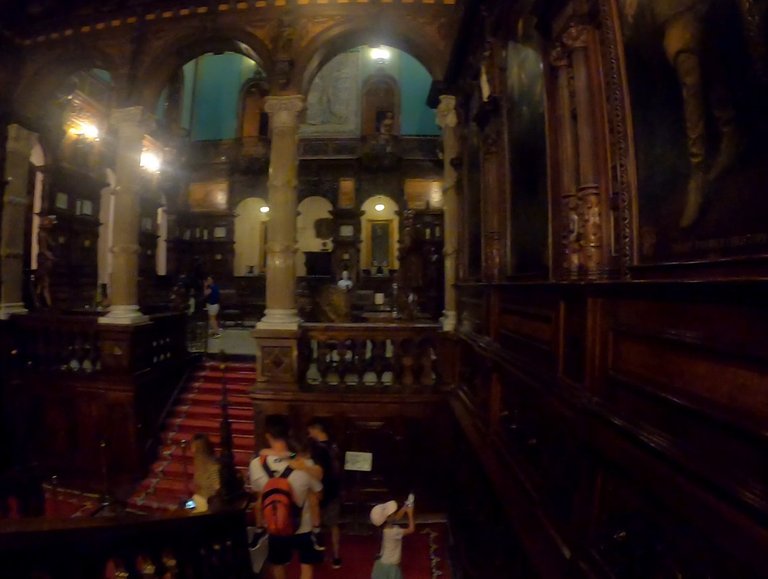
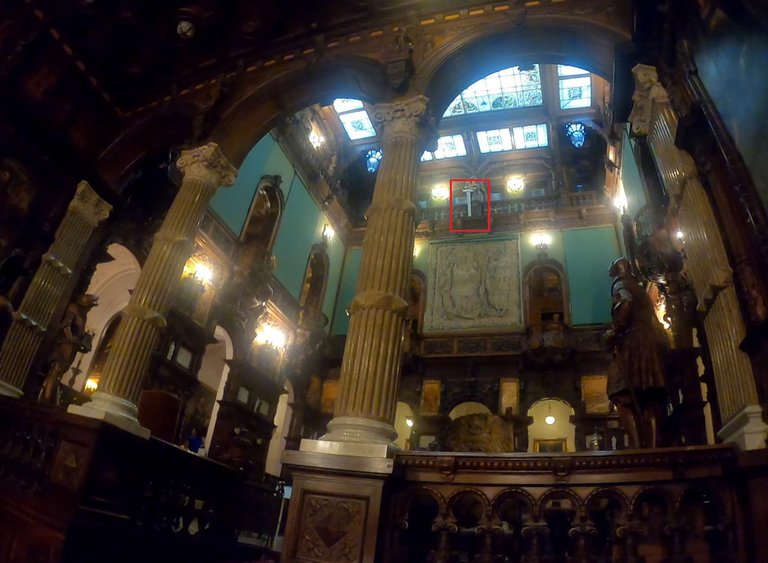
*Tip: My visit to the palace interior lasted just 9 minutes but, without a doubt, you can (you should) extend the walk through the interior of the palace much longer than what I did.
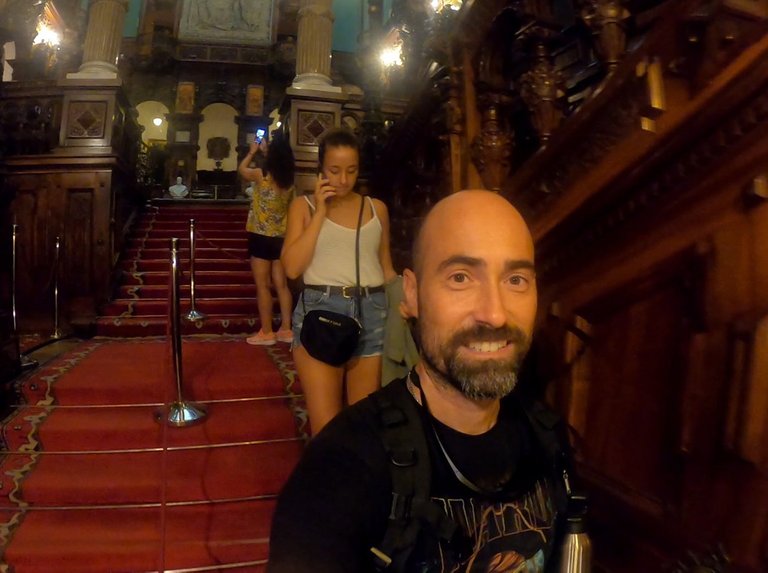
In the next article I'm visiting the tomb of Vlad Tepes III - Dracula, located on an islet in the middle of a lake, inside a small monastery.
Leaving All Behind series: Day 1, Day 2 (Part 1), Day 2 (Part 2), Day 3, Day 4, Day 5 (Part 1).
All the photographs displaying here are screenshots taken from my video.
YouTube video recorded with my GoPro Hero 8 camera.
(Audio of this video in Spanish with English captions).
Video recorded at 1440p 60 fps 4:3.
Main sources on which I heavily relied to give some accurate historical info about all the rooms inside Peles Castle: (1), (2), (3).
Peles Castle and Romania tourism website.
Congratulations, your post has been added to Pinmapple! 🎉🥳🍍
Did you know you have your own profile map?
And every post has their own map too!
Want to have your post on the map too?
Daily Travel Digest #1906.
Become part of our travel community:
- Join our Discord
- Learn more about our travel application
Hiya, @LivingUKTaiwan here, just swinging by to let you know that this post made it into our Honorable Mentions in Your post has been manually curated by the @pinmapple team. If you like what we're doing, please drop by to check out all the rest of today's great posts and consider supporting other authors like yourself and us so we can keep the project going!